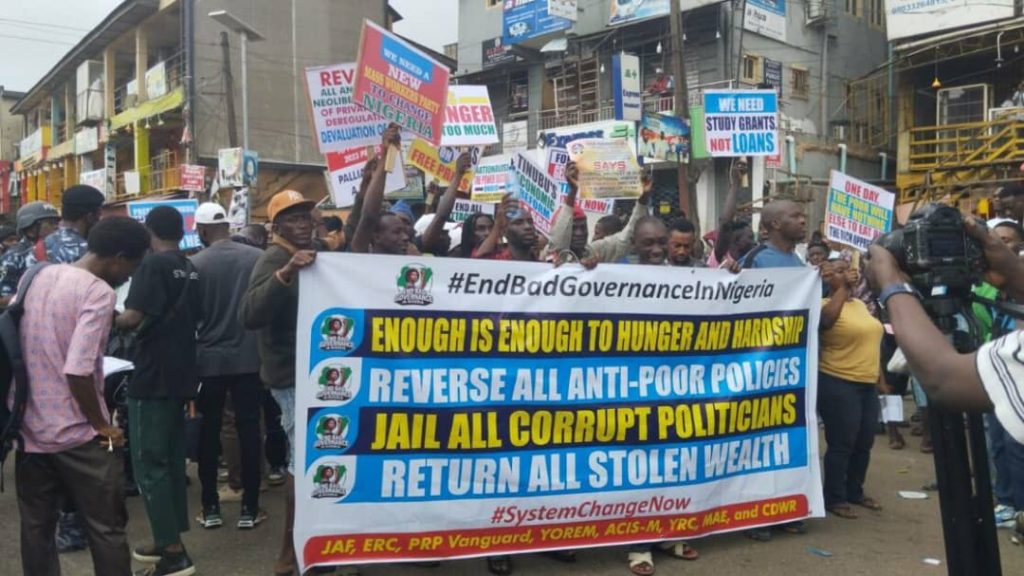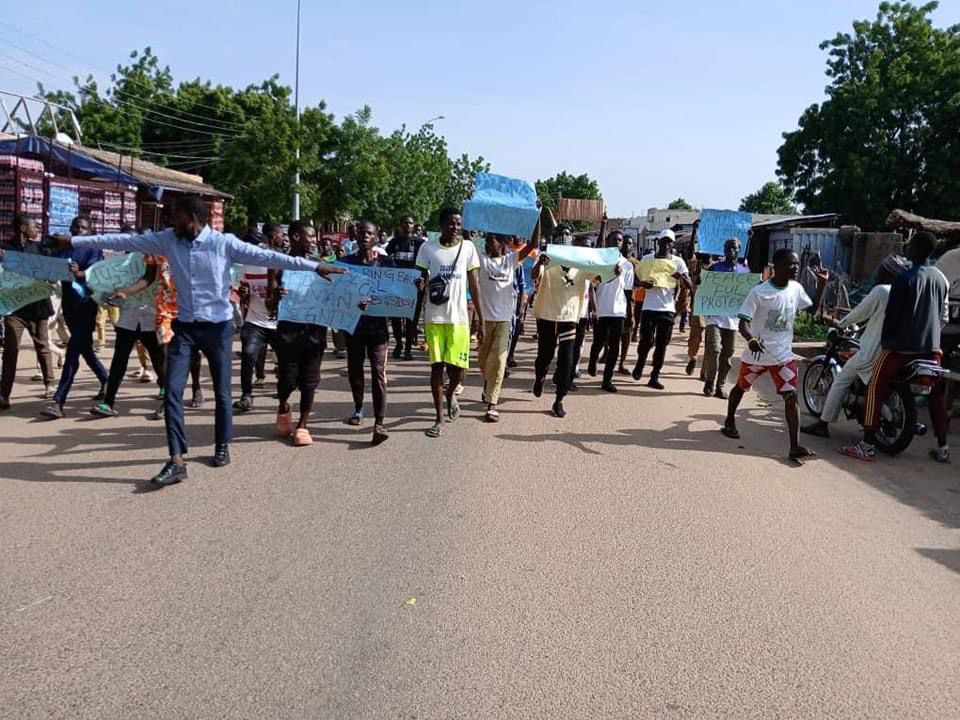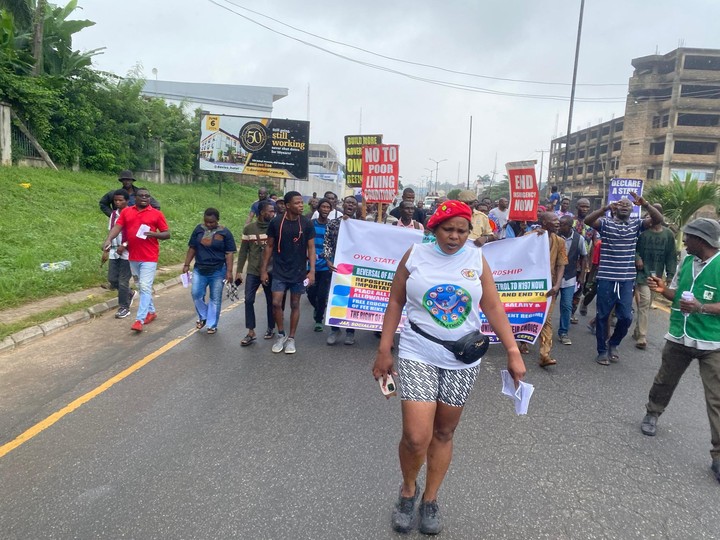
By Niyi jacobs
Protests against widespread hunger and scarcity of essential commodities have escalated into violence across Nigeria, leaving a trail of death and destruction in their wake. The demonstrations, which began peacefully, have been marred by looting, killings, and clashes between protesters and security forces.
In Kano, the governor has imposed a 24-hour curfew to restore order after the protests turned violent. The move comes after hoodlums hijacked the demonstrations, leading to the looting of properties and the maiming of innocent lives.
In Niger, the protests have claimed at least four lives, with several others injured. The victims were reportedly killed while security operatives struggled to disperse protesters who had erected barricades on a section of the Abuja-Kaduna highway.
The protests have also spread to Abuja, where hundreds of protesters are marching towards the Central Business District and Presidential Villa. The demonstrators are demanding action from the government to address the worsening economic crisis and scarcity of essential commodities.

In Ibadan, the protests are led by various groups and organizations, and are expected to last for ten days. The protesters are vowing to continue their demonstrations until their demands are met, despite the government’s efforts to quell the unrest.
The Nigerian government has yet to comment on the ongoing protests, which have brought the country to a standstill. The demonstrations have been marked by widespread violence, looting, and destruction of property, with many fearing for their safety.

As the situation continues to deteriorate, there are growing concerns about the impact of the protests on the country’s already fragile economy. The Nigerian government faces a daunting task in addressing the grievances of the protesters and restoring order to the country.













